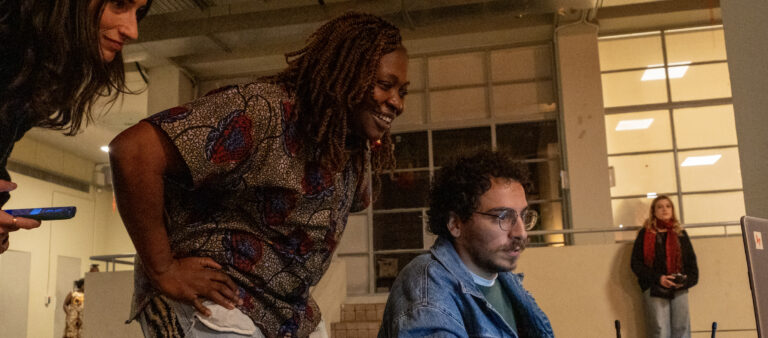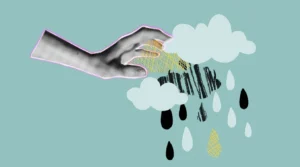According to World Bank data on solid waste in Lebanon, organic waste accounts for between 69% and 72% of total waste, paper and cardboard about 5%, plastics between 11% and 14%, metals 4%, and other materials (such as textiles, wood, and miscellaneous) ranging between 3% and 11%.
It is worth noting that as a result of Lebanon’s financial crisis, citizens’ consumption habits and preferences have changed, leading to a significant shift in waste composition. Compared to the years before 2019, many individuals now spend a larger portion of their income on essential goods such as food. This has led to a higher percentage of organic waste production, and a lower percentage of expensive packaged goods, which in turn increased the proportion of organic waste from around 50% in 2017 to about 70% in 2021.
According to World Bank estimates, Lebanon produces around 5,600 tons of solid waste per day, with the cost of waste treatment estimated at $35 per ton, and disposal costs estimated at $15 per ton.
99% of Lebanon’s waste ends up in landfills and random dumps.
The study also reported that there are currently around 50 sorting facilities distributed across Lebanon, but many of them are either inefficient or never fully operational. According to World Bank data, most of the solid waste treatment infrastructure has ceased functioning, with only 8% of the generated waste currently being processed at existing treatment facilities. Additionally, 99% of all solid waste produced is disposed of in sanitary landfills or random dumps, compared to about 77% in 2018. The percentage of waste disposed of in random dumps has increased from 22% in 2018 to 42% in 2022.
Lebanon Implements the Worst Waste Management Options
Based on the “Guidelines for Integrated Solid Waste Management in Lebanon“, which refer to the “waste hierarchy” and classify solid waste management options according to priority, Lebanon’s waste management practices are applying the two worst options—landfilling and incineration. This poses a catastrophic threat to the environment and public health due to environmental pollution, the spread of insects and diseases, and the waste of valuable resources that could otherwise be recycled.

Currently, there are about 1,200 random dumps scattered across all governorates and districts in Lebanon, and 80% of them are burned, according to Fadlallah Hassouna, founder and president of the Development for People and Environment Association, speaking at the conference “Environmental Challenges in Nabatieh and Prospects for Solutions.”
Funding Allocations for the Waste Sector
Reports from the Council for Development and Reconstruction indicate that the total value of contracts in the solid waste sector from 1992 to 2024 reached $4.735 billion, of which $2.665 billion were completed contracts, while about $2.1 billion are still in progress.
According to the World Bank’s report “Solid Waste Management Roadmap for Lebanon 2023-2026” issued in June 2023, there are plans to fund 12 major projects to support Lebanon’s solid waste sector during the period from 2022 to 2028, with a total of $108 million in funding from multiple international donors, including the World Bank, Germany, the European Union, the Kuwait Fund, the Development Fund, the Italian Agency for Development Cooperation, and the United States Agency for International Development.
There is no doubt that the amounts allocated to address Lebanon’s waste crisis are substantial and could have saved the country from an environmental disaster, providing a radical solution to the problem and turning Lebanon into a leading model in environmental sustainability. Unfortunately, the opposite has happened, and Lebanon is now considered one of the countries most affected by environmental crises and pollution, according to global environmental performance indicators.
The Waste Crisis in Nabatieh District and its Towns
The villages of Nabatieh district are groaning under the weight of a suffocating waste crisis, amid the shutdown of the only sorting plant in Wadi El-Kfour since 2016. The villages of Nabatieh produce about 560 tons of waste daily, which are transported to 26 random dumps lacking environmental and health standards and spread across the region. Trucks loaded with waste from various areas dump their loads randomly and set them on fire without any oversight, leading to thick smoke covering the area, as well as turning the dumps into breeding grounds for various insects, animals, and birds of prey, in addition to foul odors spreading over long distances and ruining the natural beauty of the region.
The Al-Kafour Plant Crisis: Political Parties, Municipalities, and Contractors Benefit from Waste Piling Up
Local sources reveal a deliberate plan behind the closure of the El-Kfour plant, involving political parties, local officials, and waste contractors, aiming to keep the waste accumulation crisis ongoing. This allows certain parties to profit from dumping waste in random dumps without processing it, generating huge financial gains. These actors work hard to keep the crisis going without real solutions, benefiting from the “filthy cake” that yields massive profits through waste accumulation.
Municipal sources indicate that the European Union allocated funds to establish a sanitary landfill more than ten years ago, and the Nabatieh–Chqif Union of Municipalities was supposed to find a property to set it up. However, it failed, despite the vast areas available in the region.
Environmental engineer Marwan Fakhr told Gherbal that there was a proposal to build a landfill, but no municipality agreed to have it on its land, despite offers to pay extra per ton to the municipal fund. The core problem was the rejection of having a landfill in any municipality’s territory, a shared issue across all regions.
He added: “Most of the dumps in the south are communal lands belonging to municipalities, and they charge other municipalities a fee per ton when they take their waste. But most dumps are public, not private, and we faced difficulties identifying their exact locations due to secrecy around them.”
Waste accumulation doesn’t actually make them money but saves them the cost of running the plant, as the cost of operating the plant today is about $25 to $30 per ton, while direct disposal or landfilling costs about $15 per ton.
Fakhr pointed out that the plant began construction in 2010 and was never sufficient to cover the entire Chqif Union of Municipalities. The main problem lies in awarding contracts for plants that cannot meet demand, have insufficient operating capacity, and lack funding sources. The El-Kfour plant’s operating capacity was about 70 tons per day, which was not enough to handle all the region’s waste.
Some sources, who requested anonymity, indicated that the operator was affiliated with a political party — Hezbollah — while the waste collection process at the time was handled by an entity linked to the Amal Movement.
During research into the entity that won the tender, it was found that the company Maamar obtained it in 2019.
The caretaker Minister of Environment, Nasser Yassin, announced during an extensive meeting held at the Union of Municipalities of Al-Shaqif, Nabatieh, South Lebanon, in February that “a radical solution to the crisis requires restoring, maintaining, and operating the waste sorting plant in Wadi Al-Kafour, and establishing a sanitary landfill for residual waste in the town of Deir Al-Zahrani. Work is currently underway to transfer supervision of sorting plants in Lebanon from the Ministry of Administrative Development to the Ministry of Environment, which is where it rightfully belongs.” He also added: “With this gradual transition, we will seek to support the municipal unions in the region to operate properly and in an integrated manner, from transport and collection to sorting and processing of waste, leading to sanitary landfilling, which must be carried out with high standards.”
An environmental expert, who requested anonymity, explained that Lebanon’s waste crisis is not new but rather the result of years of neglect and corruption. He added: “The waste management project was massive, and billions of dollars were allocated for it. However, deeply rooted corruption within institutions and contractors obstructed the implementation of these projects and led to the theft of huge sums. The result is environmental destruction and severe health pollution that the Lebanese citizen suffers from today.”
The expert continued: “If the large sums of money granted to Lebanon had been used correctly, we would now be among the model countries in waste management. Instead, we find ourselves facing a crisis that worsens day after day, with the spread of random dumps and the burning of waste, which leads to the emission of toxic gases and the pollution of soil and water.”
He pointed out that the crisis is driven by narrow interests and political and economic exploitation by certain parties, stressing that real solutions require genuine political will and strict accountability for those responsible for corruption. “We need a comprehensive national plan for waste management that includes efficient plant operations, waste recycling, and proper sanitary landfilling. Only in this way can we protect our environment and the health of our citizens,” the expert concluded.
Risks of Random Waste Dumping
Random waste dumping poses a serious problem to public health and the environment due to the release of hazardous pollutants such as:
Leachate that contaminates soil, surface water, groundwater, and the sea.
Toxic gases and foul odors.
Smoke from burning waste.
Parasites and other diseases.
Waste scattered by the wind.
The waste crisis in Al-Kafour, therefore, stems from the benefits reaped by political parties, municipalities, and waste contractors from the current situation, according to a statement from an entity in one of the concerned municipalities. They make huge profits by dumping waste randomly to reduce the costs of operating plants. Despite the allocation of $4.8 billion for environmental projects, the crisis persists due to entrenched corruption and political cover. Competition between parties revolves around dividing financial shares or engaging in deliberate obstruction when negotiations stall due to internal disputes, which blocks long-term solutions. Furthermore, the current plant does not meet the region’s needs, leading to the continuation of the problem and preventing improvements in waste management, thereby exacerbating the environmental and health crisis.




















